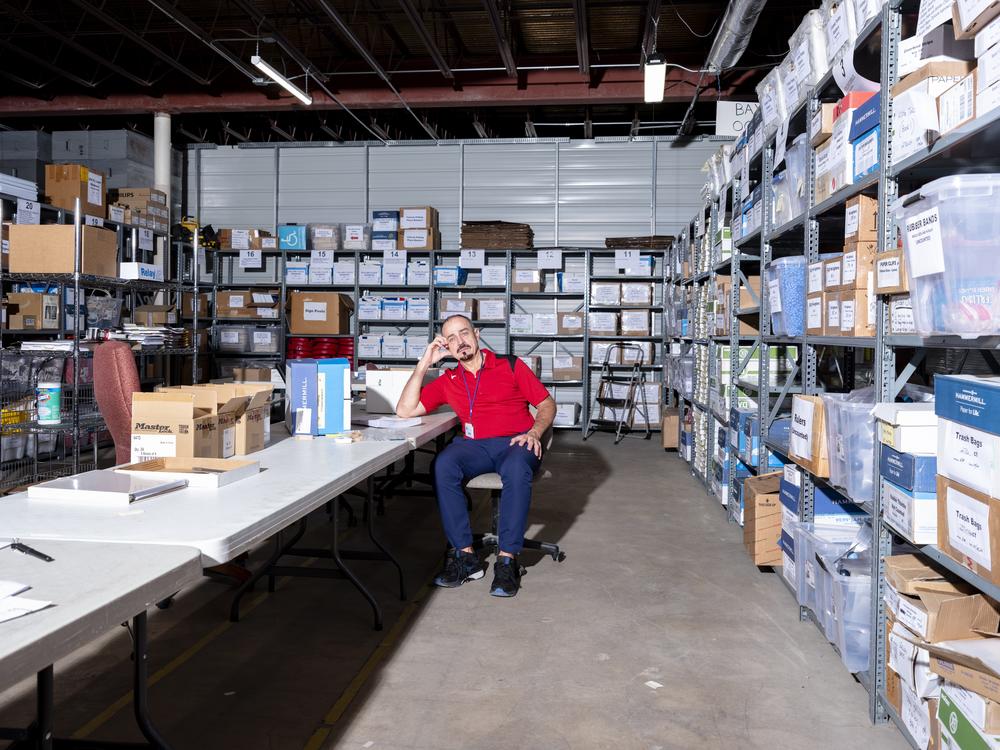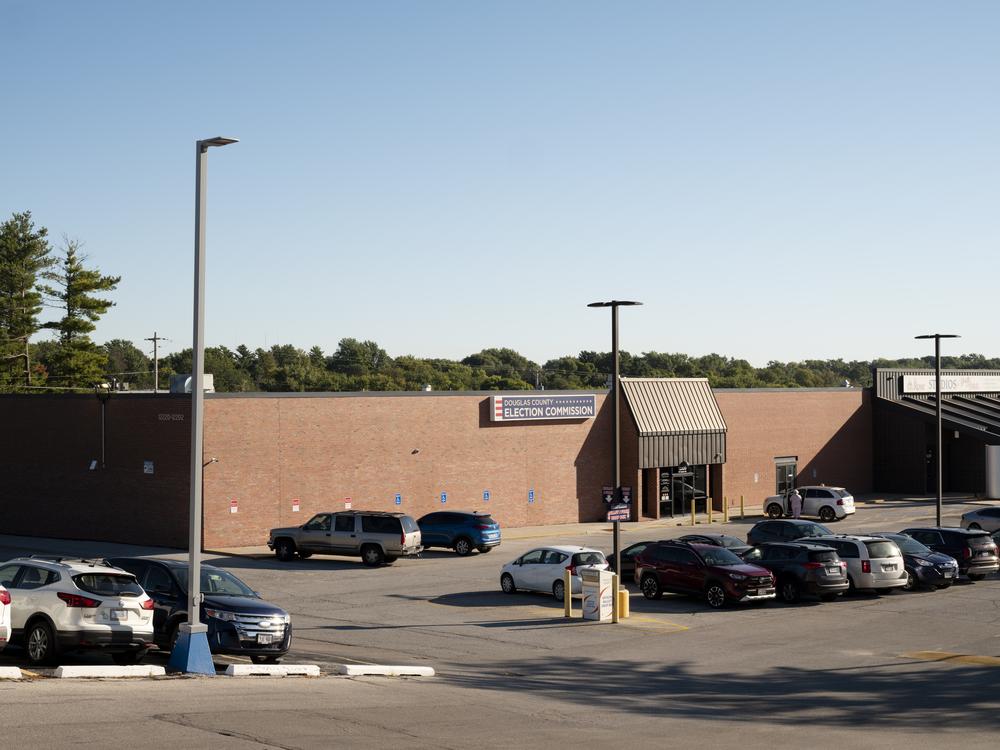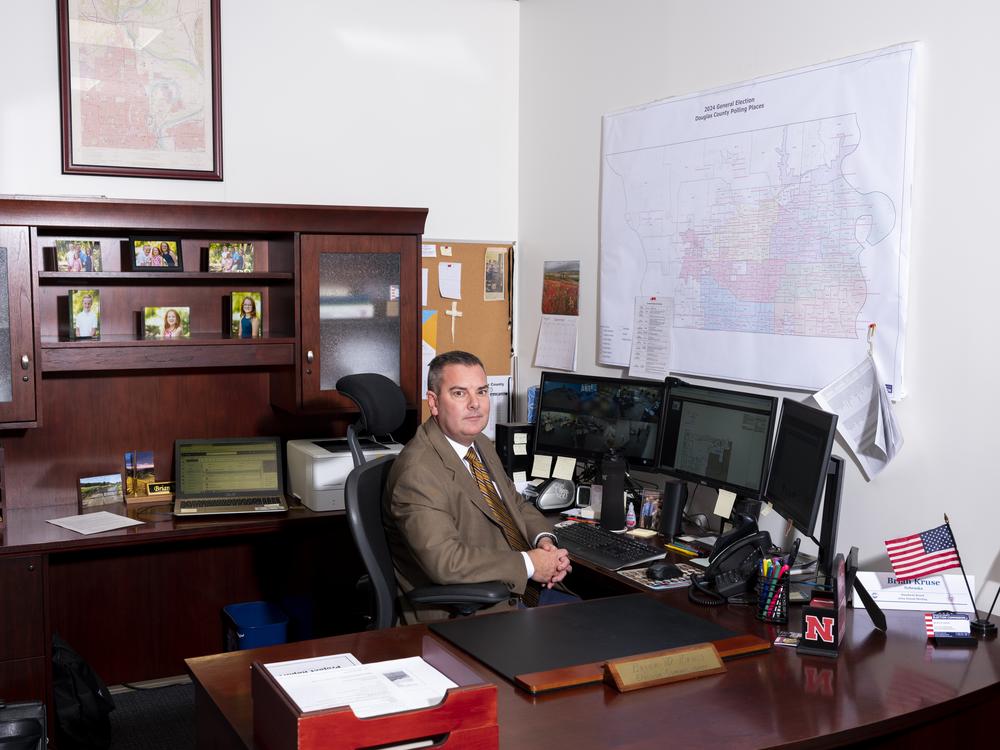Section Branding
Header Content
Poll workers can be hard to find. In Nebraska, election officials can draft them
Primary Content
OMAHA, Neb. — Joe Ricceri is busy preparing for the general election with the Douglas County Election Commission. Right now, he works at the customer service desk. But on Election Day, he’ll be a district supervisor.
Ricceri is currently a volunteer. But he didn’t start out as one. He was drafted.
He was actually drafted when his children were little, but deferred until they were old enough to drive themselves home from school.
“Then immediately, when the youngest was 16, [the county] contacted me. So, they were all over it. They did a good job there,” he said with a wry laugh.
Finding poll workers is a regular challenge for election officials. But Nebraska has a unique solution: It allows counties to draft workers to fill needs, like it’s jury duty.
The secretary of state’s office says it’s only aware of two Nebraska counties using a poll worker draft this election cycle: Omaha’s Douglas County and just south of it, Sarpy County.
In Douglas County, any registered voter is eligible and may receive a letter in the mail requiring them to serve. Even though it’s been used for years, Douglas County Election Commissioner Brian Kruse said many voters aren’t familiar with the draft and are skeptical when they receive the letter.
“I would say most voters in Douglas County, probably their reaction is, ‘Is this for real?’” Kruse said. “I mean, one of my best friends is the COO of a company here in Omaha, and one of his employees got [the letter], and he called me up, and he was like, ‘Is this for real?’ And I said, ‘Yes.’ And he said, ‘Can I get him out of it?’ And I said, ‘No.’”
Kruse laughed at the memory, but he’s not kidding. Voters here can’t get out of the draft unless they’re over 70 years old, don’t speak English, or they take themselves off the voter rolls. Kruse said that is rare.
And if a draftee doesn’t show up or doesn’t answer that letter, they could face a misdemeanor charge.
The draft offers "confidence" in staffing the election
In recent years, about half of the county’s 3,000 general election workers were drafted.
“We try to get as many volunteers as we can,” said Election Board Coordinator Brandon Olson. “Still, we don't want to just go, ‘OK, we're just gonna draft everybody.’ That's not what we're doing, but … it gives us a confidence that we aren't going to be worried about finding people.”
That’s unlike a lot of the rest of the country, even if the situation has somewhat recovered from a nationwide election shortage during the peak of the COVID pandemic, according to Marta Hanson, national program manager for the group Power the Polls.
“I would say, generally speaking, about 40% of jurisdictions we're in touch with have been like, ‘Actually, we're set, we're good, we're fully staffed, we have no issues. Please don't send us more people, because they'll just be disappointed,’” she said. “Another 40% are in desperate need of more people.”
Douglas County’s draft also fills staffing needs with a more diverse group of people — especially when many election workers are over 70.
Commissioner Kruse added that those drafted must be balanced in political party, so it’s not all registered Republicans or all Democrats. The county works to ensure all five of Nebraska’s political parties and nonpartisans are represented.
Carolina Lopez, executive director of the Partnership for Large Election Jurisdictions, was excited to hear about the program.
“I'm going to say it: I was geeking out. I was like, ‘Tell me more. I've heard about this in practice. I want to see it,’” she said.
Lopez said she’s rooting for Douglas County and can’t wait to see how the draft works this year.
“While this has been in practice in Douglas County for some time, this idea has the potential to be equally impactful for other elections communities across the country,” she added.
Kruse said some other jurisdictions have shown interest in the method, but he hasn’t seen other states employ anything like it — yet.
Douglas is the only Nebraska county that regularly uses the draft, and Kruse thinks it may be because other jurisdictions are smaller, with fewer polling places, so they don’t have as much trouble finding enough workers.
A window into understanding how fair elections work
Some voters may view the poll worker draft as a pain, but Kruse said many of the draftees turn into longtime volunteers — like Ricceri.
And he said the draft also helps more people understand fair elections.
“We have all kinds of processes and procedures in place, but it definitely gives us a broader base and we reach out to a lot more individuals, and so those individuals can see how the process works,” Kruse said. “They can go back to their neighborhoods, their PTAs, their schools, daycares, churches, synagogues, country clubs, grocery store, wherever they may socialize, and tell folks about the experience. We do hear over and over: ‘I had no idea what all went into the process.’”
Kerri Harris received her draft letter in the mail before the primary election in May. The concept was new to Harris, who had lived in the county for 18 years. She remembered she had mixed feelings about it.
“Because I was like, well, I should serve and be a good citizen. And then it was like, that's a long day, and what if I wasn't available? You know, how do they do all that? Like, what happens to me if I don't do it? You know, it seemed kind of serious, really, like you're supposed to do this,” she said.
Harris said she never would have volunteered to be an election worker; she does not have a big interest in politics, and she prefers to be outside rather than sitting inside a polling location.
All those who are voluntold must serve not just one election, but four. Once someone serves in four, they won’t be drafted again. Harris will serve in the November general plus two more before she completes her draft duty.
Harris’ service comes as some voters are questioning elections.
“I've learned a lot that I don't question the integrity of the election at all, because I see everything that everybody has to go through to make sure that the right people vote,” she said. “So, I think it says a lot for the integrity of Douglas County.”
Draftee-turned-volunteer Ricceri said he sees value in playing a role in the democratic process.
“You're doing the justice for the people to vote and allowing them to vote and have a voice in the government. So that's important.”
And it’s an important election year in Nebraska. Voters can look forward to a packed ballot filled with six initiatives — including on abortion and marijuana — as well as two U.S. senators and the president. It’s also the first general election in which voters are required to present an ID.
As of now, the drafted election workers and volunteers have completed their online training. But they may still get one more letter telling them they’re not needed for this election, and to keep their mailboxes open for the next one.



